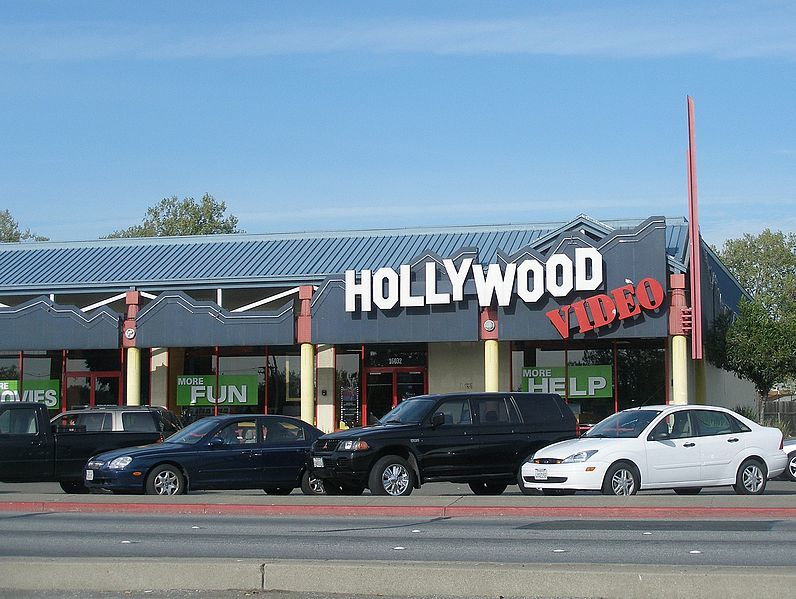On January 31, the Senate Judiciary Committee heard testimony for and against changing the Video Privacy Protection Act, a law written to keep video-store rental lists secret. Netflix was among the proponents of changing the law, which currently prohibits the video rental company from sharing subscribers’ streaming content on social media sites even at the user’s request.
The VPPA was passed in 1988 after a Washington newspaper published Supreme Court nominee Robert Bork’s video rental list. Sponsored by Rep. Robert Goodlatte (R-VA), House Resolution 2471 was passed in December by a 303 to 116 roll-call vote in the House of Representatives and has been sent to the Senate.
“Updating the law, as proposed by Netflix and others, would allow users to more easily share this information if they choose,” said Daniel Castro, a senior analyst at the Information Technology and Innovation Foundation, a nonpartisan research and educational institute based in Washington DC. “No user would be forced to share this information, but users would also not face procedural barriers to doing so as they face today.”
Ambiguity Creates Friction
If the Senate approves HR 2471, Netflix plans to offer Facebook integration to its more than 21 million subscribers that stream content in the United States. Netflix-Facebook integration would allow its U.S. subscribers to instantly share what they watch with their Facebook friends.
David Hyman, general counsel of Netflix, testified before the committee that the company has received strong consumer interest in Netflix-Facebook integration outside the United States. More than half a million Internet customers outside the United States are connected with Facebook.
“Under this law, it is unclear whether consumers can give ongoing consent to allow Netflix to share the movies and TV shows they’ve instantly watched through our service,” Hyman testified. “The friction that this ambiguity creates places a drag on social-video innovation that is not present in any other medium, including music, books, and even news stories.”
‘Model Privacy Law’
Critics of the VPPA proposal include Rep. Melvin Watt (D-NC). He argues there’s a lack of clarity on who exactly the updated law would apply to other than Netflix, uncertainty over whether Netflix could share consumers’ information with others besides Facebook friends, no additional consumer protections to mirror Netflix’s new abilities, and possible conflicts with existing state laws.
Marc Rotenberg, executive director at the Electronic Privacy Information Center, a public-interest research organization in Washington DC, testified VPPA should be updated but Congress should do so in a way “that strengthens the law.”
“The current bill would amend the video privacy law by removing a core privacy protection—the requirement that companies obtain consumers’ consent before each disclosure of personal information. Thus the amendment would transfer control over disclosure of video records from the consumer to the company,” Rotenberg stated in his testimony.
“The Netflix proposal was an effort to gut a model privacy law,” Rotenberg told InfoTech & Telecom News. “Fortunately, there was no support in the Senate. Good updates to privacy laws safeguard the rights of Internet users.”
Consumer Control
Christopher Wolf, a privacy-rights expert with the Washington, DC law firm Lovells LLP, favors the VPAA reform proposal. He testified the purpose of VPPA is not to stop people from sharing information about the videos they watched, but to put the control in the hands of the consumers.
“Facebook users commonly utilize a one-time authorization—a durable choice option—to share a wide range of information with their friends. But their ability to use such an authorization to share video-watching experiences arguably is thwarted by the restrictive, outdated language of the statute requiring consent of the consumer given at the time the disclosure is sought,” Wolf said.
Senate Prospects Unclear
It is unclear at this point what decision the Senate will make or whether the Obama administration supports amending VPPA. A February 2012 House Committee Report made it clear updating the VPPA doesn’t rank high on the public’s agenda.
“While public support alone should not dictate whether Congress passes a piece of legislation, the total lack of evidence that the American people need or desire a new law certainly relieves any pressure to rush this bill towards enactment,” the House Committee Report states.
“Netflix is working to address concerns raised by Senators at last week’s hearing, and we are optimistic that a consensus can be reached,” said Steve Swasey, vice president of corporate communications at Netflix. “Netflix believes that maintaining strict privacy protections for our members is compatible with giving them new ways to discover the movies and television shows they love by connecting to their friends on social networks,” he said.
“There is no reason why information about the videos watched on YouTube should be treated differently than the information about videos watched on Netflix,” Castro said. “I would suggest broadening the definitions used to make it clear that video watching data is protected for all users regardless whether it is a 30-second clip on a YouTube or a feature-length movie on Netflix. Ideally, this could be extended to protect the access history of users to all content, including text, audio, and video.”
Alyssa Carducci ([email protected]) writes from Tampa, Florida.
Internet Info
“House Resolution 2471,” Rep. Robert Goodlatte, sponsor, passed by the U.S. House of Representatives on December 6, 2011: http://www.govtrack.us/congress/bill.xpd?bill=h112-2471
“Video Rental Privacy Testimony,” David Hyman et. al., C-Span, January 31, 2012: http://www.c-spanvideo.org/program/304051-1
“There Is No Evidence That There Is Broad Public Support for These Limited Amendments to the VPPA,” 112th Congress (2011-2012), House Report 112-312: http://thomas.loc.gov/cgi-bin/cpquery/?&dbname=cp112&sid=cp112vkj17&refer=&r_n=hr312.112&item=&&&sel=TOC_26558&




